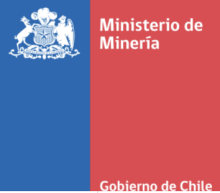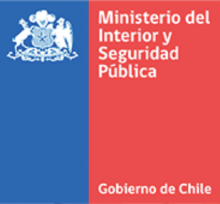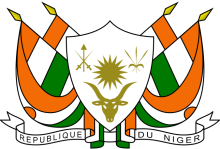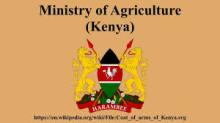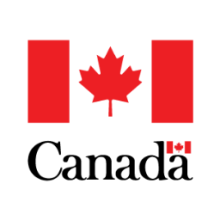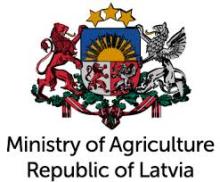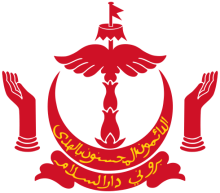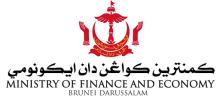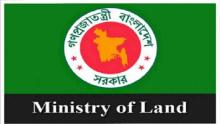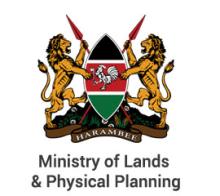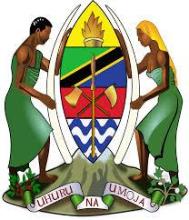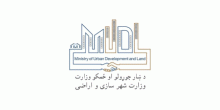Le bibliothèque du foncier comprend des ressources provenant de plus de 1 890 fournisseurs d'informations nationaux et internationaux. Découvrez les organisations et les institutions qui utilisent le Land Portal pour partager leurs recherches, leurs données et leurs histoires en libre accès.
Ministerio de Agricultura y Desarrollo Rural (Colombia)
Misión
Formular, Coordinar y Evaluar las políticas que promuevan el desarrollo competitivo, equitativo y sostenible de los procesos agropecuarios forestales, pesqueros y de desarrollo rural, con criterios de descentralización, concertación y participación, que contribuyan a mejorar el nivel y la calidad de vida de la población colombiana.
Visión
Entidad líder en la formulación, gestión y coordinación de las políticas agropecuarías, pesqueras, forestales y de desarrollo social rural, que propendan por su armonización con la política macroeconómica y por una ejecución descentralizada, concertada y participativa.
Ministerio de Ambiente y Energía Costa Rica
La misión del MINAE es contribuir al mejoramiento de la calidad de vida de los habitantes del país mediante la promoción del manejo, conservación y desarrollo sostenible de los elementos, bienes, servicios y recursos ambientales y naturales del país, cuya gestión corresponda al MINAE por disposición legal o convenio internacional, garantizando la necesaria y plena armonía entre las actividades de desarrollo nacional, el respeto por la naturaleza y la consolidación jurídica de los derechos ciudadanos en esta materia.
Ministerio de Medio Ambiente y Recursos Naturales República Dominicana
La misión del Ministerio de Medio Ambiente y Recursos Naturales es regir la gestión del medio ambiente, los recursos naturales, los ecosistemas y sus servicios para conservar el patrimonio natural de la nación, alcanzar el desarrollo sostenible y así garantizar el derecho de la sociedad a un ambiente sano.
Ministerio de Medios Ambiente y Recursos Naturales
Recuperar el entorno estratégico ambiental salvadoreño y reducir los riesgos socio-ambientales, a través de promover una vigorosa cultura ciudadana y coordinación interinstitucional bajo principios institucionales.
Visión
El MARN cumple su mandato como rector que lidera una gestión ambiental pública, enérgica, articulada, incluyente, responsable y transparente.
Ministerio de Minería Chile
MISIÓN:
Diseñar, ejecutar y evaluar políticas públicas de minería, orientadas a elevar y difundir la contribución del sector minero al desarrollo nacional, fomentando la innovación, productividad y la sustentabilidad, a objeto de aprovechar los recursos mineros disponibles en condiciones socialmente inclusivas.
VISIÓN:
Ser el principal actor y articulador de las políticas públicas de minería en Chile y ser reconocido por contribuir a la valoración y difusión del aporte del sector al desarrollo del país.
Ministerio del Interior y Seguridad Pública Chile
Entre las funciones del Ministerio del Interior y Seguridad Pública de Chile están:
- Proponer al Presidente de la República las normas y acciones sobre políticas internas orientadas a mantener el orden público, la seguridad y la paz social.
- Aplicar, por medio de las autoridades de Gobierno Interior, las normas que para este efecto se dicten.
- Coordinar los Ministerios encargados, en sus respectivas esferas de competencia, de la seguridad pública y ciudadana.
- Promover e impulsar políticas de desarrollo regional, provincial y local, evaluando su ejecución.
- Fiscalizar el cumplimiento de normas legales, reglamentarias y técnicas y de las instrucciones que se dicten para la administración civil del Estado, en materias atingentes a las áreas de desarrollo regional, modernización y reforma administrativa.
Ministério do Desenvolvimento Agrário
Ministre de l’Elevage - NIGER
Conformément au décret n°2011-077/PRN/MEL du 25 mai 2011, déterminant les attributions du Ministre de l’Elevage, le Ministre est chargé, en relation avec les ministres concernés, de l’élaboration, de la mise en œuvre et du suivi de la politique nationale en matière de développement de l’élevage, conformément aux orientations définies par la Stratégie du Développement Rural (SDR) et les autres politiques du sous secteur. A ce titre, il exerce les attributions suivantes :
1. la conception et la mise en œuvre des politiques en matière de l’élevage ;
2. la mise en œuvre, le suivi et l’évaluation des programmes et sous programmes d’investissements et projets de développement dont le Ministère de l’Elevage assure la maitrise d’ouvrage, tels que définis par les politiques sous sectorielles ;
3. la réalisation et l’exécution des programmes de recherche, vétérinaires, zootechniques, agronomiques et de technologies rurales ;
4. l’élaboration et la mise en œuvre des programmes d’animation, de formation, d’encadrement et d’appui conseil aux acteurs ruraux du sous secteur de l’Elevage ;
5. l’élaboration et la mise en œuvre des programmes de formation du personnel (cadres et auxiliaires) du sous secteur de l’Elevage ;
6. l’élaboration et la mise en œuvre des programmes d’information et de communication au grand public ;
7. l’élaboration de la réglementation en matière d’élevage et du code rural ;
8. l’organisation de l’exploitation et le suivi de la gestion des infrastructures d’hydraulique pastorale ;
9. les contrôles des produits biologiques à usage vétérinaire et zootechnique ;
10. la maîtrise de la santé et la productivité du cheptel ;
11. la collecte, le traitement et la diffusion des données statistiques en matière d’élevage ;
12. la promotion de la production, de la transformation et de la commercialisation des produits des filières pastorales ;
13. l’élaboration de la réglementation régissant le mouvement coopératif et le suivi de sa mise en œuvre ;
14. le suivi des activités des coopératives rurales du sous-secteur de l’Elevage ;
15. l’élaboration et la mise en œuvre de la politique nationale de la sécurité alimentaire en relation avec les institutions concernées ;
16. la maitrise d’ouvrage et la maitrise d’œuvre des infrastructures et des équipements ruraux pastoraux ;
17. la prévention et la gestion des conflits ruraux ;
18. l’exercice de la tutelle technique sur les établissements publics, sociétés d’État et sociétés d’Économie mixte, relevant de son domaine de compétence ;
19. la contribution à la mise en œuvre des stratégies sectorielles nationales ;
20. l’entretien de relations avec les organisations et institutions internationales intervenant dans son domaine de compétence en relation avec le Ministre chargé des Affaires Étrangères ;
21. la gestion des relations avec les organismes nationaux intervenant dans son domaine de compétence.
Ministry of Agriculture (Ethiopia)
The Ministry of Agriculture (MoA) is the Ethiopian government ministry which oversees the agricultural and rural development policies of Ethiopia on a Federal level. The powers and duties of the MoA include: conservation and use of forest and wildlife resources, food security, water use and small-scale irrigation, monitoring events affecting agricultural development and early warning system, promoting agricultural development, and establishing and providing agriculture and rural technology training.
Source: Wikipedia (d.d. November 13th 2017)
Ministry of Agriculture (Kenya)
Vision & Mission
Our Vision:
A secure and wealthy Nation anchored by an innovative, commercially oriented and competitive agricultural sector.
Our Mission:
To improve the livelihood of Kenyans and ensures food security through creation of an enabling environment and ensuring sustainable natural resource management.
Ministry of agriculture Canada
Nous collaborons avec les agriculteurs et les producteurs d'aliments afin d'appuyer la croissance et le développement du secteur de l'agriculture et de l'agroalimentaire. Nos politiques, nos programmes, nos recherches et nos technologies aident ces derniers à réussir sur les marchés canadiens et mondiaux.
Ministry of Agriculture Republic of Latvia
Ministry of Agriculture are responsible for agriculture, forest sector, fisheries, rural development, veterinery and food.
Functions of ministry are: Develop agriculture, forest sector and fishery policies; Organisation and coordination of agriculture, forest sector and fishery policies implementation.
Objective of the rural development policy is improving competitiveness of agriculture and forestry, applying new methods and technologies, and particularly, supporting young farmers.
Ministry of Development
The Ministry of Development (MoD; Malay: Kementerian Pembangunan) is a ministry in the government of Brunei responsible for public works, land use, environment, public housing and national geomatics. The current Minister of Development is Suhaimi bin Gafar and has held office since 2018.
Ministry of Environment, Forest and Climate Change (MoEFCC), Government of India
The Ministry of Environment, Forest and Climate Change (MoEFCC) is the nodal agency in the administrative structure of the Central Government for the planning, promotion, co-ordination and overseeing the implementation of India's environmental and forestry policies and programmes.
The primary concerns of the Ministry are implementation of policies and programmes relating to conservation of the country's natural resources including its lakes and rivers, its biodiversity, forests and wildlife, ensuring the welfare of animals, and the prevention and abatement of pollution. While implementing these policies and programmes, the Ministry is guided by the principle of sustainable development and enhancement of human well-being.
The Ministry also serves as the nodal agency in the country for the United Nations Environment Programme (UNEP), South Asia Co-operative Environment Programme (SACEP), International Centre for Integrated Mountain Development (ICIMOD) and for the follow-up of the United Nations Conference on Environment and Development (UNCED). The Ministry is also entrusted with issues relating to multilateral bodies such as the Commission on Sustainable Development (CSD), Global Environment Facility (GEF) and of regional bodies like Economic and Social Council for Asia and Pacific (ESCAP) and South Asian Association for Regional Co-operation (SAARC) on matters pertaining to the environment.
The broad objectives of the Ministry are:
- Conservation and survey of flora, fauna, forests and wildlife
- Prevention and control of pollution
- Afforestation and regeneration of degraded areas
- Protection of the environment and
- Ensuring the welfare of animals
These objectives are well supported by a set of legislative and regulatory measures, aimed at the preservation, conservation and protection of the environment. Besides the legislative measures, the National Conservation Strategy and Policy Statement on Environment and Development, 1992; National Forest Policy, 1988; Policy Statement on Abatement of Pollution, 1992; and the National Environment Policy, 2006 also guide the Ministry's work.
Ministry of Finance and Economy, Brunei Darussalam
VISION: A Dynamic, Prosperous And Progressive Nation
MISSION: To Deliver Economic And Financial Sustainability
Function and Roles
|
Ministry of Foreign Affairs of the Netherlands
Every hour of every day, the Ministry of Foreign Affairs promotes the interests of the Kingdom abroad. The Ministry coordinates and carries out Dutch foreign policy at its headquarters in The Hague and through its missions abroad. It is likewise the channel through which the Dutch Government communicates with foreign governments and international organisations.
Ministry of Justice Sri Lanka
The Vision
"Efficient system of administration of justice"
Law reform to respond to societal needs in keeping with global advancements and the aspirations of the people.
The Mission
- Formulation and implementation of policies, plans and programmes aimed at the efficient and meaningful administration of Justice.
- Law reform for greater recognition, protection and promotion of the rights of the citizens.
Ministry of Land Bangladesh
Welcome to Ministry of Land
Bangladesh is characterized by very high population growth and scarcity of land. Land availability as well as its sustainable management has important bearings on overall development in general, food security, business development and human habitation in particular. The rapid increase of population is continuously reducing the land-man ratio of the country. The rate of land transfer and land conversion is also very high in Bangladesh. Rapid population growth combined with fast rate of land transformation urges for an effective land administration and management system. To establish a sustainable land administration and management system the current government, included it as an important agenda in the Seventh Five Year Plan document.
The current administrative structure of land management in Bangladesh is built around three core functions: (i) record keeping, (ii) registration, and (iii) settlement. The core functions of land administration are maintained by various departments of two Ministries, The Ministry of Land (MoL) and the Ministry of Law, Justice and Parliamentary Affairs (MLJP). While the MoL discharges most of the land-related activities including survey, collection of land development tax, arbitration process, the MLJP mainly records land mutation and transfers.
Ministry of Lands and Physical Planning (Kenya)
Mission
To facilitate efficient land administration and management, acess to adequate and affordable housing, social and physical infrastructure for national development
Vision
To be a globally competitive organization in sustainable management of Land and built environment
Ministry of Lands, Housing and Human Settlements Development (Tanzania)
The Ministry of Lands, Housing and Human Settlements Development has been mandated to administer land and human settlement in Tanzania. It provides various land related services to individuals and institutions in the country, and provides advice to government and the public on matters pertaining to human settlements development
Ministry of Natural Resources and Environmental Conservation (Myanmar)
Profile for the Ministry of Natural Resources and Environmental Conservation in Myanmar.
It is the combination of Ministry of Mines and Ministry of Environmental Conservation and Forestry (MOECAF) created during the mandate of President Htin Kyaw.
Ministry of Rural Development and Land Reform - Republic of South Africa
The Ministry of Rural Development and Land Reform (DRDLR) was created in 2009. For the first time in its history, the country would have a ministry dedicated to the social and economic development of rural South Africa; committed to ensuring that South Africans residing in rural areas enjoyed the same benefits as their urban cousins, so that that they too were covered by the blanket of human rights and basic dignity guaranteed in our Constitution.
Following its establishment, the new ministry immediately embarked on an intensive process to define and conceptualise what rural development should be, and to provide a framework of how it should be implemented. Government’s plan for developing rural areas, the Comprehensive Rural Development Programme (CRDP) is aimed specifically at curing the blight of poverty by the creation of vibrant, equitable and sustainable rural communities.
To achieve its vision, the new department defined its role and mission as being that of facilitating integrated development and social cohesion through partnerships with all sectors of society. The most important strategy the department pursues to deliver on the CRDP’s strategic objectives is, Agrarian Transformation.
Objectives of the agrarian transformation strategy include (but are not limited to):
- Social mobilisation to enable rural communities to take initiatives;
- Sustainable settlements (access to basic services and economic opportunity; meeting of basic human needs; infrastructure development);
- Establishment of cooperatives and enterprises for economic activities; wealth creation; productive use of assets;
- Non-farm activities for strengthening of rural livelihoods;
- Leadership training, social facilitation and familiarity with CRDP objectives; socio-economic independence.
- Skills development and employment creation (youth, women, people living with disabilities);
- Democratisation of rural development, participation and ownership of all processes, projects and programmes by rural communities;
- Co-ordination, alignment and cooperative governance (Local Municipalities, Traditional Councils, Provincial Government and rural communities);
- Participation of Non-Governmental Organisations including faith-based organisations, Community- Based Organisations and other organs of civil society;
- Social cohesion and access to human and social capital.
The key mandate of the former Department of Land Affairs has been made an integral part of the Agrarian Transformation System, and the programme forms part of a three-legged strategy which aims to ensure that the department achieves its objectives.
The first leg - sustainable land and agrarian transformation: The aim is to increase agricultural production through the optimal and sustainable use of natural resources and appropriate technologies to ensure food security, dignity and improved rural livelihoods. This will subsequently lead to vibrant local economic development.
The second leg - rural development: This focus is on improving both economic infrastructure (such as roads, community gardens, food production, fencing for agriculture, etc.) and social infrastructure (e.g., communal sanitation, and non-farming activities). To successfully achieve this, ownership of processes, projects and programmes is vital.
The third leg - land reform based on restitution, redistribution and land tenure reform: Deliberate and intensified post-settlement support is available to ensure that land transferred to black South Africans contributes to the fight against poverty, by ensuring food security and underpinning economic and social transformation in rural areas. Land reform remains critical to the comprehensive development of South Africa’s rural areas and the government’s recapitalisation and development of land reform projects, currently in distress, bears testimony to this.
Key priorities
- To roll out the CRDP to all rural municipalities;
- To improve productivity in land reform projects through effective implementation of the Recapitalisation and Development Programme (RADP);
- To expedite the finalisation of land claims;
- To improve corporate governance and ensure enhanced service delivery;
- To implement proper change management and innovation strategies; and
- To enhance the efficiency of information management systems.
Through the implementation of this strategy, the department aims to achieve its goal of social cohesion.
This Mid-term Review highlights the progress of the department in implementing its strategy and achieving its objective.
Ministry of Urban Development and Land, Afghanistan
Reforming of the legal and organizational structures of government departments, for the purpose to develop relevant measures and to achieve a desirable situation is considered as one of the basic methods for reform of the administrative system, which provides ground for success in providing better services for the public of the country. With regard to such policies, ex Ministry of Urban Development and Housing - MUDH and ex Afghanistan Land Authority – ARAZI, has been merged on the bases of presidential decree no. 107 dated 10/09/2016, for the same mission under the name of the Ministry of Urban Development and Land – MUDL.
History of the Ministry of Urban Development and Housing - MUDH
The Ministry of Urban Development and Housing was founded in 1961 under the framework of the Ministry of Public Works with the name General Department of Urban Development, and then promoted to the General Directorate of Urban Development and Housing in 1966. Subsequently, it followed to work under the Ministry of Public Works as a profit making enterprise in the name of (Urban and Construction Projects Institute) and later renamed to the central Institute of Planning (project making) in 1965. Later on, it was promoted to the Ministry of Urban Development and Housing in 1993. In 2007 it was transferred to the Ministry of Urban Development, and in 2018 to the Ministry of Urban Development and Housing.
History of Afghanistan Land Authority - ARAZI
Since the beginning of 2001, the Afghan government has focused on regulating and managing land as means of collecting taxes, and in the past Ministries of Interior Affairs and Finance were responsible for carrying out these tasks, which were later transferred to the Ministry of Agriculture in 1978. In 1964, Cadaster and Property Directorates were created by the Ministry of Finance and resulted in the preparation of the first accurate office of land. The Director of Cadaster in 1974 was separated by a distinct decision by the Ministry of Finance and has merged with the General Directorate of Geodesy and Cartography, which led the Real Estate Administration not to have direct access to cadastral maps.
The Real Estate Agency in 1978, was transferred to the Ministry of Agriculture on the basis of the government’s economic policy. Afterward, land reform focused on the distribution of excess land to the poor and the needy people, based on the policy of the ruling government, the unusual cause that failed. The land reform process faced with obstacles in the year of 1992, and the administration of the real estate lost more employees and even the strong support of the ruling system. Then, in 2010, under the framework of the Ministry of Agriculture, irrigation and Livestock, the plan to improve land use effectively and increase state revenues for the direct lease of state-owned land to the private sector continued work and then in 1390 was renamed to Afghanistan Land Authority - ARAZI.
In accordance with resolution no. 11 dated 06/05/2013, the Afghanistan Land Authority was separated from the Ministry of Agriculture, Irrigation, and Livestock as an independent budget authority. Subsequently, in 2016, according to the plan of the President of the country, the Directorate of Cadaster and then the Department of Geodesy and Cartography, was merged with the Afghanistan Land Authority in order to coordinate the activities and provide the same services.
Regarding the history and changes, developments of the above mentioned institutions from the point of view of the structural and legal responsibilities, the integration of Afghanistan Land Authority with the Ministry of Urban Development and Housing under the name of Ministry of Urban Development and Land – MUDL is considered to be the best government practice.
This merging in fact is updating the relevant Urban and Land Management structures and using many regional and international experiences in this field. Technically the majority of the duties and responsibilities of both entities, which were ratified in the laws of urban planning and regulation of land management, had no operational capability without coordination and perhaps more time spent on coordination and cooperation. By completing merging plan, the challenges have been resolved in terms of the basic structure, and the Ministry of Urban Development and Land - MUDL within the framework of government policies and laws, can achieve its strategic goals by implementing legally enforceable responsibilities and duties.
Minority Rights Group International
Minority Rights Group International campaigns worldwide with around 130 partners in over 60 countries to ensure that disadvantaged minorities and indigenous peoples, often the poorest of the poor, can make their voices heard. Through training and education, legal cases, publications and the media, we support minority and indigenous people as they strive to maintain their rights to the land they live on, the languages they speak, to equal opportunities in education and employment, and to full participation in public life.
We understand how discrimination based on age, class, gender and disability can have a multiple impact on disadvantaged minorities, and our campaigns target governments and communities to eradicate such attitudes.
Minority Rights Group International has over 40 years experience of working with non-dominant ethnic, religious and linguistic communities and we bring a long term view of these issues to bear in all the work we do.
We work with minorities as diverse as the Batwa in Central Africa, Roma in Europe, Christians in Iraq and Dalits in India and Nepal to name but a few.
MRG is an international non-governmental organization (NGO) with an international governing Council that meets twice a year. We have consultative status with the United Nations Economic and Social Council (ECOSOC) and observer status with the African Commission for Human and Peoples’ Rights.
Minority Voices
The Minority Voices programme is a 3-year development and training project being run by Minority Rights Group. The overall aims of the Minority Voices programme are:
- To increase the inclusion of minority and indigenous peoples' perspectives in the EU media, particularly in coverage of development issues relating to the Millennium Development Goals (MDGs).
- To increase awareness among development policy-makers of the specific needs of minority and indigenous communities in meeting the MDGs.
The aim of this website is to close the gap between journalists and minority activists. Journalists can quickly identify stories and media contacts - with a primary focus on minorities and indigenous peoples and the MDGs - while activists and individuals from within a minority or indigenous community can use this website to engage with EU-based media.
For more information about any aspect of the Minority Voices programme please get in touch via the Contact page.
Minurvi
MINURVI es la entidad de coordinación y de cooperación intergubernamental de los países de América Latina y del Caribe, en el área de desarrollo sustentable de los asentamientos humanos.
Está compuesto por los Ministros de Estado y las demás autoridades gubernamentales bajo cuya competencia se encuentren, en los respectivos países, los asuntos vinculados al desarrollo sustentable de los asentamientos humanos. Cada Estado Miembro designa la autoridad gubernamental que lo presentará en las reuniones de MINURVI.
Mirova
A committed player and a leading player in sustainable finance, Mirova is a conviction-based management company that offers its clients investment solutions combining the search for financial performance with environmental and social impact. This is our raison d'être: to contribute to a more sustainable and inclusive economy by increasing our positive impact on environmental issues, but also on reducing inequalities.
As ‘Mission-led company’, thanks to multidisciplinary teams united around the same vision, the variety of our areas of expertise, and our ability to innovate and create partnerships with the best experts, we seek to direct capital towards the needs of investment in a real, sustainable and value-creating economy.
Our internationally recognised BCorp certification attests to our environmental and social commitment.






